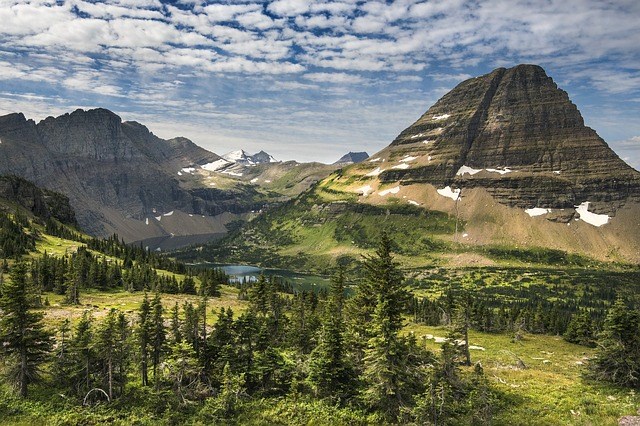We have all been exposed to online petitions in the past few years, but one that caught the eye of the media on both sides of the 49th parallel this month was unique. Someone identified as Ian Hammond is suggesting that the state of Montana should be sold to Canada for US$1 trillion.
The petition alleges that the money that Canada would pay for what is colloquially known as Big Sky Country would be used to eliminate America’s national debt. While US$1 trillion is a considerable amount of money, the United States would be required to sell 21 more states at the same price to actually erase its national debt, calculated late last year a US$21.97 trillion.
In any case, the idea has provided plenty of fodder for the media. At the time of this writing, more than 16,000 people have added their names to the petition. Research Co. asked Canadians about it last week. Across the country, a majority of respondents (56%) disagreed with the notion of purchasing Montana, but almost three in 10 (28%) were ready to welcome an American state into Confederation.
Canadian men are more likely to support the purchase than women (32% to 24% respectively). On a regional basis, residents of Alberta boasted the highest level of support for a “Canadian Montana” at 37%, followed closely by Saskatchewan and Manitoba at 34%.
There was little fluctuation across party lines, with very similar proportions of Canadians who voted Conservative (30%), Liberal (28%) and New Democratic (26%) in the 2015 federal election saying Canada should buy Montana.
The biggest variation is observed on age. Just 21% of Canadians aged 55 and over and 28% of those aged 35-to-54 would consent to the Montana purchase. But the proportion jumps dramatically among those aged 18 to 34 to 41%.
Montana borders three Canadian provinces: British Columbia, Alberta and Saskatchewan. Its main economic activities are agriculture and ranching, which may suggest a perfect extension of Alberta into the south. However, Montana is landlocked, so its acquisition would not facilitate the process of getting Alberta’s oil to Asian markets, unless a pipeline somehow turned westward into Idaho and Oregon.
In some respects, Canada would be adding a distinctly multicultural province. Montana’s state motto, “Oro y Plata,” (“Silver and Gold”) is the only one in the entire United States to be penned in Spanish, instead of the most habitual Latin or English. The motto also enshrines the importance of mining, at a time when resource development projects have become more controversial than ever in Western Canada.
Montana’s state animal is the grizzly bear, the same species that was recently protected by the British Columbia government in the form of an extremely popular ban on trophy hunting. If Montana became a province, Canada would get a piece of the coveted Yellowstone National Park, as well as the second-largest ski resort in the United States – Big Sky.
There are also implications in the world of sport. Welcoming Montana into Confederation might help bring about tax incentives to refurbish the Centennial Ice Arena in Billings, in the hopes of bringing an eighth National Hockey League (NHL) team to Canada. Montana’s residents pay no sales tax, but that would change after the purchase. This should prompt the ownership group to christen the NHL franchise as the “GST Billings.”
The population of Montana is similar to those of Manitoba and Saskatchewan, so both should serve as starting points to figure out how to establish a legislature for the newest Canadian province. Saskatchewan’s legislative assembly has 61 seats, and Manitoba’s has 57. Let’s split the difference and award Montana a legislature with 59 members.
At this time, Montana has 100 members in the state House of Representatives and 50 in the state Senate. A process of primaries would reduce those 150 state lawmakers to 59, and a test would transfer existing Democrats and Republicans into Canada’s more traditional political parties.
Montana’s three representatives in the U.S. Congress – two senators and one congressman—would be immediately appointed to the Canadian Senate. If we allocate Montana the same six seats that other western provinces have in the Red Chamber, that leaves us with three vacancies.
Let’s take two nominees from the realm of entertainment. Missoula-born filmmaker David Lynch and actor Dana Carvey would be wonderful additions to the upper house. We could even find a way for Mike Myers to preside their citizenship ceremony.
The final Senate nominee from Montana is Phil Jackson, who coached teams to 11 National Basketball Association titles. We not only gain a capable negotiator, but an ideal option to coach Canada’s basketball team in the Tokyo 2020 Summer Olympics.
Unfortunately, Canadians rejected the purchase by a two-to-one margin. But we still can ponder what could be.
Mario Canseco is president of Research Co.




